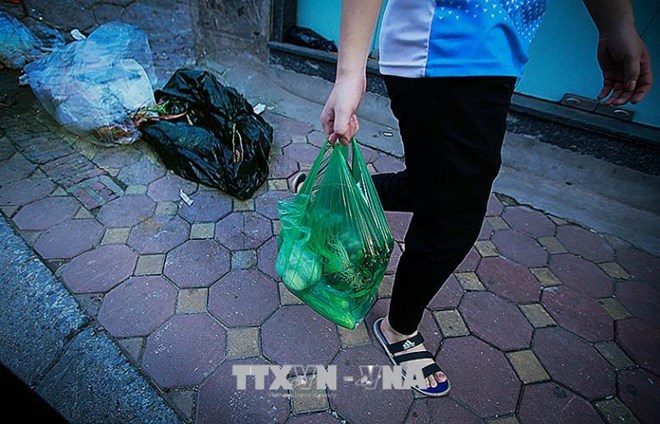
Nguyen Thanh Lam from the Vietnam Environment Administration (VEA) said plastic waste, including nylon bags, accounts for 5-10 percent of daily solid waste, or about 1.5 million tonnes a year.
Statistics of Ho Chi Minh City’s Statistics Offices showed among 8,900 tonnes of solid waste discharged in the city each day, about 1,800 tonnes are plastic waste, with only 200 tonnes recycled, while the remaining is buried along with other solid waste.
Director of the waste management department under the VEA Nguyen Thanh Lam said the Ministry of Natural Resources and Environment is pushing ahead with the implementation of the National Strategy on integrated management of solid waste to 2025 with a vision to 2050. The strategy sets the goal of having all shopping centres and supermarkets use environmentally-friendly nylon bags instead of conventional ones.
The ministry is also coordinating with other ministries, agencies and localities to tighten control of the import of plastic waste into Vietnam, along with strengthening management of plastic recycling villages and building policies to gather small-scale recycling facilities into industrial parks.
The country will also work to gradually reduce and finally end the import, production and supply of conventional nylon bags for daily use at shopping centres and supermarkets by 2026.
Vietnam is also receiving support from international organisations in limiting plastic waste. The ERASMUS programme of the EU has sponsored a project on recycling plastic waste in Southeast Asia, which will be carried out from October 2017 to October 2020, involving universities and industrial partners from Laos, Vietnam, Denmark, Germany and Austria.